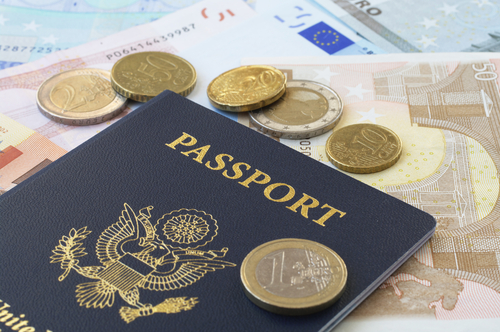It’s not surprising that most Americans rely exclusively on the internet and apps to book and manage their travel, but across Europe, nearly 70 percent of people do so, also.
According to a new survey from MarkMonitor, 68 percent of consumers across the U.S. and Europe now exclusively book their travel online. However, seven out of every 100 respondents surveyed ended up with plans not in line with their expectations, highlighting a definite need for increased education when booking online.
The research, conducted by a leading market research company Opinium, analyzed the online behavior of consumers around booking travel online, including bargain hunting for seasonal goods and attitudes towards piracy. Opinium surveyed 3,257 consumers across eight countries, including the U.K., U.S., Germany, France, Italy, Denmark, Spain and the Netherlands.
With its focus on booking travel online, the survey results also reveal that of those consumers who booked a holiday that fell short of their expectations, posting a negative review was their first reaction (42%), above trying to get a refund (40%) and complaining to a licensing body (35%) — demonstrating the power of online “word of mouth.” Alarmingly, following this bad experience, 37% of respondents report their debit or credit card details were misused or stolen, showing the requirement for increased vigilance when shopping or booking online.
“With the growth of social media and a culture where consumers have the power to make their displeasure widely known through social networking sites, online brand protection has never been more important. This is especially evident in the fact that when asked how they vetted a travel site, almost half (47%) of consumers said they read the reviews,” says Mark Frost, CEO of MarkMonitor.
With one of the main reasons for using the Internet to book travel being that it’s cheaper, 75% of consumers also go on to search for discounted goods online prior to their holidays, including sunglasses, clothing and shoes, event tickets, guide books and luggage. But looking for bargains doesn’t mean buying cheap counterfeit goods or knock-offs as, overwhelmingly, the desire for genuine goods remains with 83% saying they wouldn’t willingly buy fake products to keep up with seasonal trends.
However, of those 75% seeking discounted products online, almost 10% report they have bought something online that turned out to be fake — with clothing and shoes (33%) and sunglasses (28%) cited most often. This attitude towards buying genuine goods is reflected when it comes to piracy with 84% of consumers saying they would never download pirated content. The main reasons for this relate to morality — 56% say it’s wrong — and security — 52% say they don’t want to risk downloading a virus. Online security remains top of mind amongst consumers, a finding also reflected in the first MarkMonitor Online Barometer that found 64% of respondents worry about their online security.
“In an increasingly digital world, consumers are exposed to more and more online fraud, counterfeiting and piracy. While the desire is still to buy genuine goods, fraudsters are becoming more sophisticated in their approaches making it even riskier for consumers. For brands with an online presence, protecting themselves and their customers through a solid online brand protection plan is absolutely key,” concludes Frost.
For the full research report, click here
Thanks for reading CPA Practice Advisor!
Subscribe Already registered? Log In
Need more information? Read the FAQs




